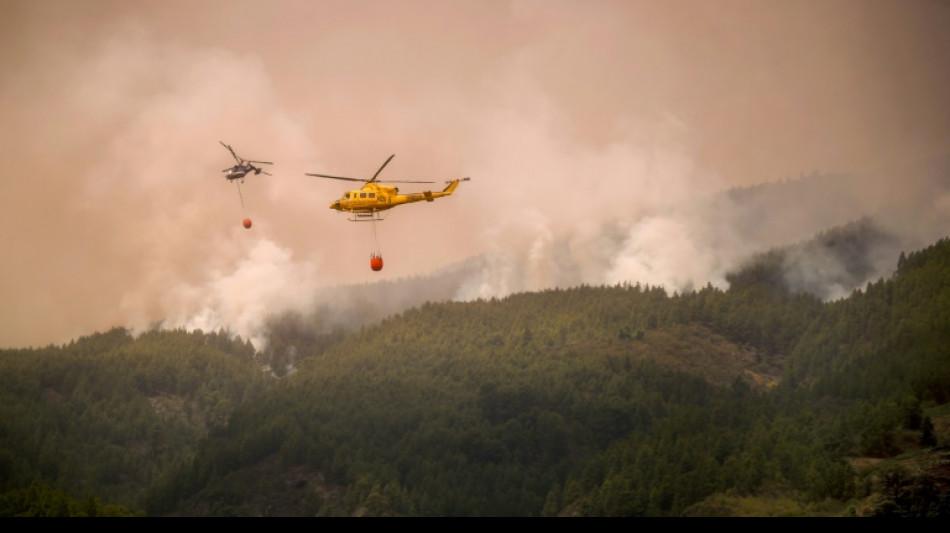Spain PM hopes Tenerife wildfire will stabilise 'in coming days' / Photo: DESIREE MARTIN - AFP
Spanish Prime Minister Pedro Sanchez said Monday he hoped a wildfire that has forced thousands of people to evacuate on the holiday island of Tenerife will be stabilised "in the coming days".
The blaze broke out late Tuesday in a mountainous northeastern area, quickly morphing into the Canary Islands' biggest-ever wildfire.
"We hope the weather will help us to declare the fire as stabilised in the coming hours, coming days. May the weather be on our side," Sanchez told reporters during a visit to the island.
So far, the fire, which now has a perimeter of around 90 kilometres (55 miles), has burned through nearly 41,000 hectares (28,700 acres) of land, which is about 6.5 percent of Tenerife's overall surface area, the regional government said.
It has forced more than 12,000 people to flee their homes, it added.
Sanchez said his government would classify the areas affected by the blaze as disaster zones, a move which will trigger emergency subsidies and other support measures.
"The government of Spain is going to get as involved in the work of reconstruction as it is now with the task of civil protection," he said in the village of Arafo which has been affected by the blaze.
Some 600 firefighters and soldiers backed by 22 water-dropping aircraft were battling the wildfire, which is affecting 12 municipalities.
Local authorities said cooler temperatures and weaker overnight winds had helped firefighters make gains in their battle against the blaze.
"The worst is behind us," the Canary Islands' regional leader Fernando Clavijo said on Monday morning during an interview with Spanish public radio.
- 'Endangered lives' -
The fire appears to have been started deliberately, he said, adding he hoped Spain's Guardia Civil police force will be able to arrest the "raving lunatics" responsible.
"Not only do the put in danger the natural heritage of a marvellous island, they also endangered the lives of hundreds of people," he added.
Contacted by AFP, the local Guardia Civil did not confirm the theory that the fire was caused intentionally.
"The investigation is continuing, it is far too early to know. There is a high probability that it was provoked, but we cannot rule out any line of investigation for the moment," a Guardia Civil spokeswoman said.
The blaze broke out after the archipelago suffered a heatwave that left many areas tinder dry.
The Canary Islands typically experience spring-like temperatures all year but the mercury soared to hit 40 degrees Celsius (104 Fahrenheit) in some parts.
The seven-island archipelago is located off the northwest coast of Africa and southwest of mainland Spain. At their nearest point, the islands are 100 kilometres (60 miles) from Morocco.
As global temperatures rise due to climate change, scientists have warned that heatwaves will become more frequent and intense.
Last year, Spain suffered more than 500 blazes that destroyed more than 300,000 hectares, making it the worst-hit country in Europe, according to the European Forest Fire Information System (EFFIS).
So far this year, it has had 340 fires, which have ravaged almost 76,000 hectares, EFFIS figures show.
F.Mahajan--BD
